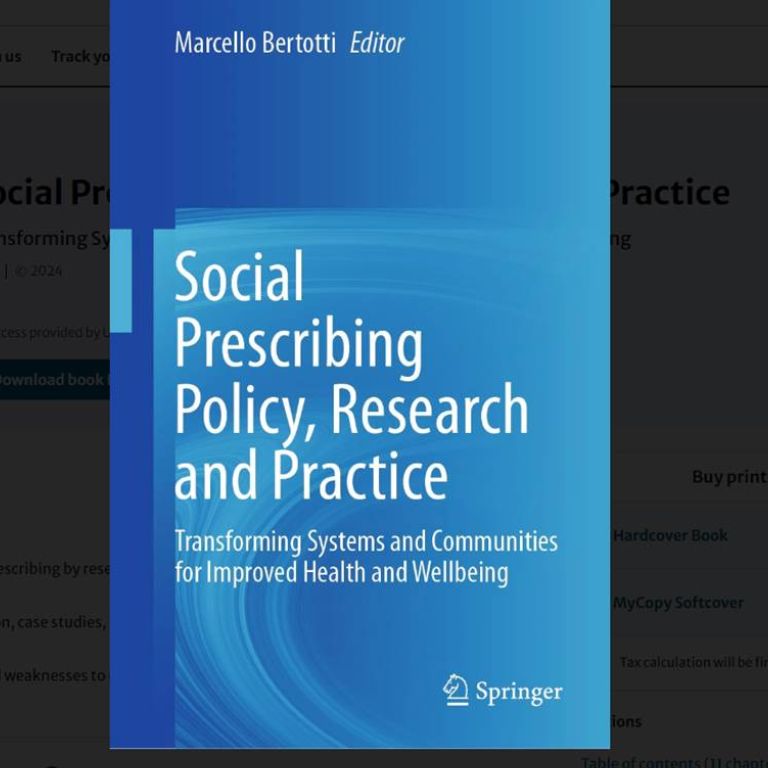New Book Chapter Explores Social Prescribing’s Role in Tackling Health Inequalities

We are pleased to announce that Senior Research Associates Koser Khan, of the ARC NWC, EEquitable Place-Based Health and Care (EPHC) theme has been involved in an international book collaboration which has led to the first book across countries on social prescribing being published.
Drawing upon first-hand knowledge, experiences and research conducted by international researchers the book showcases the role of social prescribing and offers a global perspective on the strengths and weaknesses of social prescribing implementation.
Koser said: “It has been a fantastic opportunity to contribute to the publication of this book and work with Stephanie Tierney from the University of Oxford to draw on our research insights and experiences and write a chapter on social prescribing and health inequalities.”
Koser’s & Tierney’s chapter critically examines the role of social prescribing in addressing health inequalities, encouraging readers to consider who is accessing social prescribing and what barriers may exist. The chapter concludes with considerations on how to better evidence impact of social prescribing on health inequalities.
By weaving together practical insights, research and policy debates, collaborators offer a comprehensive reference source on social prescribing for policymakers, practitioners, and researchers.
“Whilst we recognise the value of social prescribing and the role it can play in supporting heath equity we think it is important to reflect on how are we reaching those in most need and keep in mind that equity in social prescribing is not only about referrals and access but also what happens when individuals do access social prescribing for example what support/ interventions do they receive and what outcomes are being reported. Collecting better data can help us better evidence impact and ensure the work we do does not exacerbate inequalities.”
Social Prescribing Policy, Research and Practice: Transforming Systems and Communities for Improved Health and Wellbeing has been published by Springer Publications and can be accessed on the Springer website.